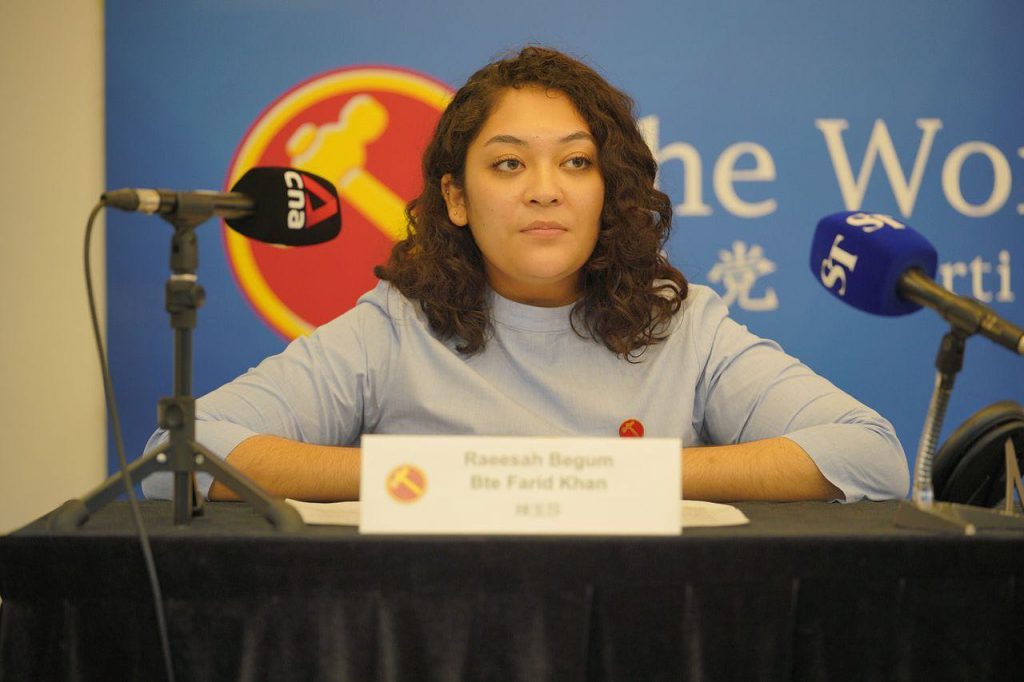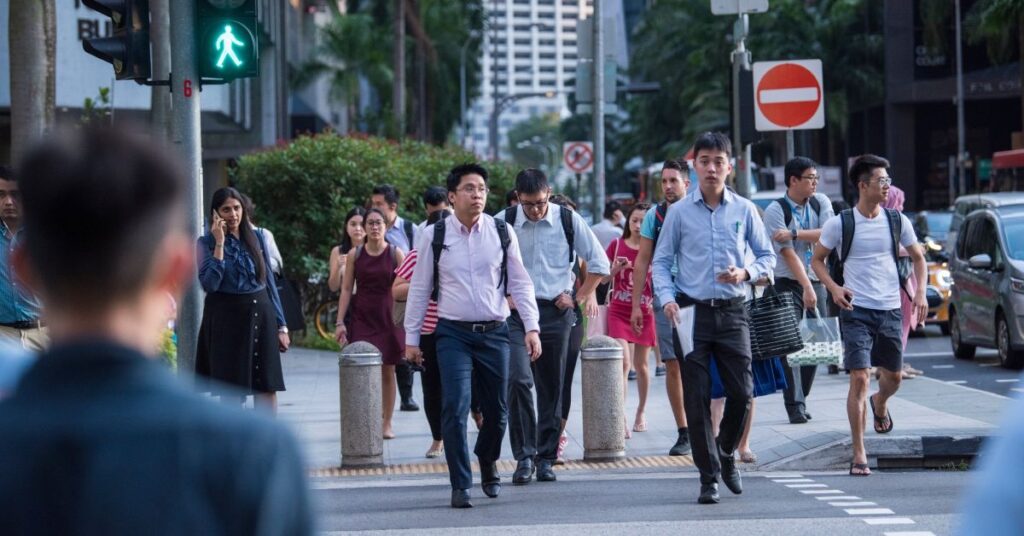Worker’s Party (WP) Raeesah Khan is under police investigation for social media posts discussing race and religion in Singapore.
On July 4 and 5, two police reports filed by members of the public were lodged against Raeesah after her posts went viral.
In a public statement, the Singapore Police Force stated that “an offence of promoting enmity between different groups on grounds of religion or race under Section 298A of the Penal Code is disclosed.” Police investigations are ongoing.
Backed by the WP, Raeesah submitted a public apology on Sunday stating that “(her) intention was never to cause any social division, but to raise awareness (about) minority concerns”.
However, that has failed to stem the storm sweeping across social media.
Deputy Prime Minister Heng Swee Keat and the ruling People’s Action Party (PAP) have been accused of disrupting racial and religious harmony as reprisals from members of the public.
Truth is, Raeesah’s exposé isn’t just the product of political infighting or polarisation. It’s also the outcome of a piece of outdated, broken legislation.
How Silencing Raeesah Triggered a Flame War
In May, pro-PAP Facebook pages leaked Raeesah’s social media content, accusing her of “pushing racial divides”. The two posts listed below were the initial triggers of the media frenzy.
Raeesah had criticised the discriminatory enforcement of social distancing regulations on migrant workers and racial minorities. Another post expressed sympathy for underrepresented “brown women” in politics.

Raeesah responded sympathetically to a member of the public who alleged that WP’s Kenneth Foo Seck Guan made insensitive comments about race and language.
She also alleged that Singaporean courts were bribed into giving church leaders lenient sentences after embezzling more than S$50 million in donations.
Differences in the way mosque leaders were “harassed” and racial minorities disproportionately jailed in the prison system were highlighted.

Some of the initial criticism directed at Raeesah was the product of a pro-PAP smear campaign intended to “avenge” Ivan Lim. The ex-PAP candidate was forced to bow out of the elections after a smear campaign enacted online last week.

Many offended by Raeesah’s posts believe that her unfounded allusions to social divides in Singapore had the potential to disrupt racial and religious harmony.
Mercilessly jailing minorities? You mean there are no other races in prison? Harassing mosque leaders? Is it (okay) for mosque leaders to make extremist remarks disparaging other religions? Church leaders walked free? They all have been jailed, remember?
– Gong Simi Singapore
Supporters of Raeesah have rallied against the hate directed at the opposition member, flooding social media in displays of support — the hashtag #IstandwithRaeesah is now trending online.
Racial and religious divides are considered a social reality, not an unfounded allegation worthy of criminalisation. Article 298A has been denounced as an instrument of injustice, and curtailing of the freedom of speech:
Not only are you subjected to daily micro-aggressions which bring the severity of your oppression into stark relief. Oftentimes, your rage at this injustice can also be weaponised against you, most dangerously, through the use of instruments that are actually meant to protect you.
– Hazirah Mohamad via Facebook
Netizens have also clarified the context behind Raeesah’s posts.
During the circuit breaker, low-skilled migrant workers were deported while highly paid expats were given a slap on the wrist after breaking the social distancing laws.
Additionally, women from ethnic minorities are severely underrepresented in Parliament. Raeesah’s allegations that City Harvest leaders bribed their way out of court mirrored conspiracies circulating online, and there were concerns that their sentences were overtly lenient.
You Report Me? I Report You Back
The feeding frenzy over Raeesah has escalated into trolling, doxxing, and reprisal reports of 298A violations. Racial remarks made by PAP politicians who remained free of public prosecution are circulating online.

Citizens have taken it upon themselves to report offending politicians for violations of 298A.
In 2019, TODAY reported Heng’s statement which said that the older generation of Singaporeans was not ready for a minority Prime Minister during a dialogue at the Nanyang Technological University (NTU).
A police report was subsequently filed on 5 July by an anonymous member of the public. Mr Heng’s remarks were alleged to be “socially divisive” and cause to feel “unsafe”.
On 6 July, another police report was filed against the PAP in response to a blog post published on their official website.
The report stated that the PAP had falsely accused Raeesah of “making highly derogatory statements about Chinese and Christians,” thereby “promoting false narratives which seek to divide rather than unite Singaporeans.”
The Failure of 298A
What started as a smear campaign became a police case when 298A was weaponized against Raeesah for electoral gain.
Singapore’s Penal Code contains legislation that excessively limits and restricts civil liberties and freedom of speech.
However, legislation like 298A, the Sedition Act and Internal Security Act are easy to abuse.
298A is a Legal Double Standard
Under 298A, persons found guilty of knowingly promoting, or attempting to promote “disharmony or feelings of enmity, hatred or ill-will between different religious or racial groups” are liable to be fined and/or imprisoned for up to three years.
Any act charged under 298A is a criminal offense. This stands in stark contrast to “gentler” legislation like the Maintenance of Religious Harmony Act (MRHA).
Under MRHA, offenders are issued Restraining Orders (ROs) and charged as criminals only if they contravene the RO.
In addition, offenders can make repatriations under government-issued Community Remedial Initiatives (CRI).
It’s worth questioning why there exists two levels of legislation in Singapore’s penal code — 298A and MRHA contain vastly different punitive measures for the same offense.
It’s even more pertinent to ask why Raeesha is being charged as a criminal under 298A as opposed to the MRHA.
298A Is A Broken Alarm
Anybody can file a violation of 298A under Singapore’s penal code, which allows private individuals to make Magistrate’s Complaints for perceived criminal offenses.
It becomes a case of ‘he said she said’, where feelings of offense are sufficient motivation for criminal charges.
There does not appear to be a limit on the number of reports that can be filed against one person.
In the 2015 case against political exile Amos Yee, at least 20 police reports were issued by civilians. Amos was charged under 298A, among other articles in the Penal Code and stood as an adult in a criminal trial.
Some failsafes against false reporting exist. People who provide misinformation to the court can be charged with up a fine and/or up to two years imprisonment under article 203A in the Penal Code.
Despite the threat of reprisal, reports of 298A violations ran rampant during the Raeesah Khan debacle, wasting public resources and valuable SPF man hours.
298A Is A Bad Legislation
298A (a) states that whoever —
by words, either spoken or written, or by signs or by visible representations or otherwise, knowingly promotes or attempts to promote, on grounds of religion or race, disharmony or feelings of enmity, hatred or ill-will between different religious or racial groups
– Penal Code, Singapore
— is liable to be charged in court.
However this legislation is incredibly vague.
Firstly, it’s unclear how one should determine whether feelings of “enmity, hatred or ill-will” have been evoked. Feelings are highly subjective and cannot be observed. Only physical manifestations of feelings, like violence, can be recorded.
Secondly, “spoken or written” words capable of fomenting racial and religious divides are left open to interpretation. The lack of definition means that one can claim almost any type of speech to have caused racial and religious enmity.
This poorly defined piece of legislation led to the flurry of police cases launched against politicians like Raeesah and Heng Swee Keat, political parties like the PAP, and civilians like Amos Yee.
Do You Stand With Raeesah?

What is concerning is that the immediate response to Raeesah’s allegations were to silence her, not debate with her.
Instead of looking for information to verify the truth of what Raseeah posted online, the pages which started the media frenzy decided to name and shame.
It became a matter of tearing down a public figure, rather than investigating what was really important: the extent of racial and religious inequality in Singapore, and the crux of the disagreement in the first place.
Instead of proving that racial and religious inequality didn’t exist, the public assumed that it didn’t and hopped onto the ‘flame Raeesah’ bandwagon, ironically committing the same fault they accused her of.
It became a matter of ego and winning an argument, rather than a matter of discussing a concerning social issue.
This incident is proof that Singapore’s socio-political culture has a long way to go in Singapore.
Featured Image Credit: Workers’ Party via Facebook
Check out our GE 2020 microsite for the latest election-related news, find out which constituency you belong to, and who’s running where on the election battleground here.












